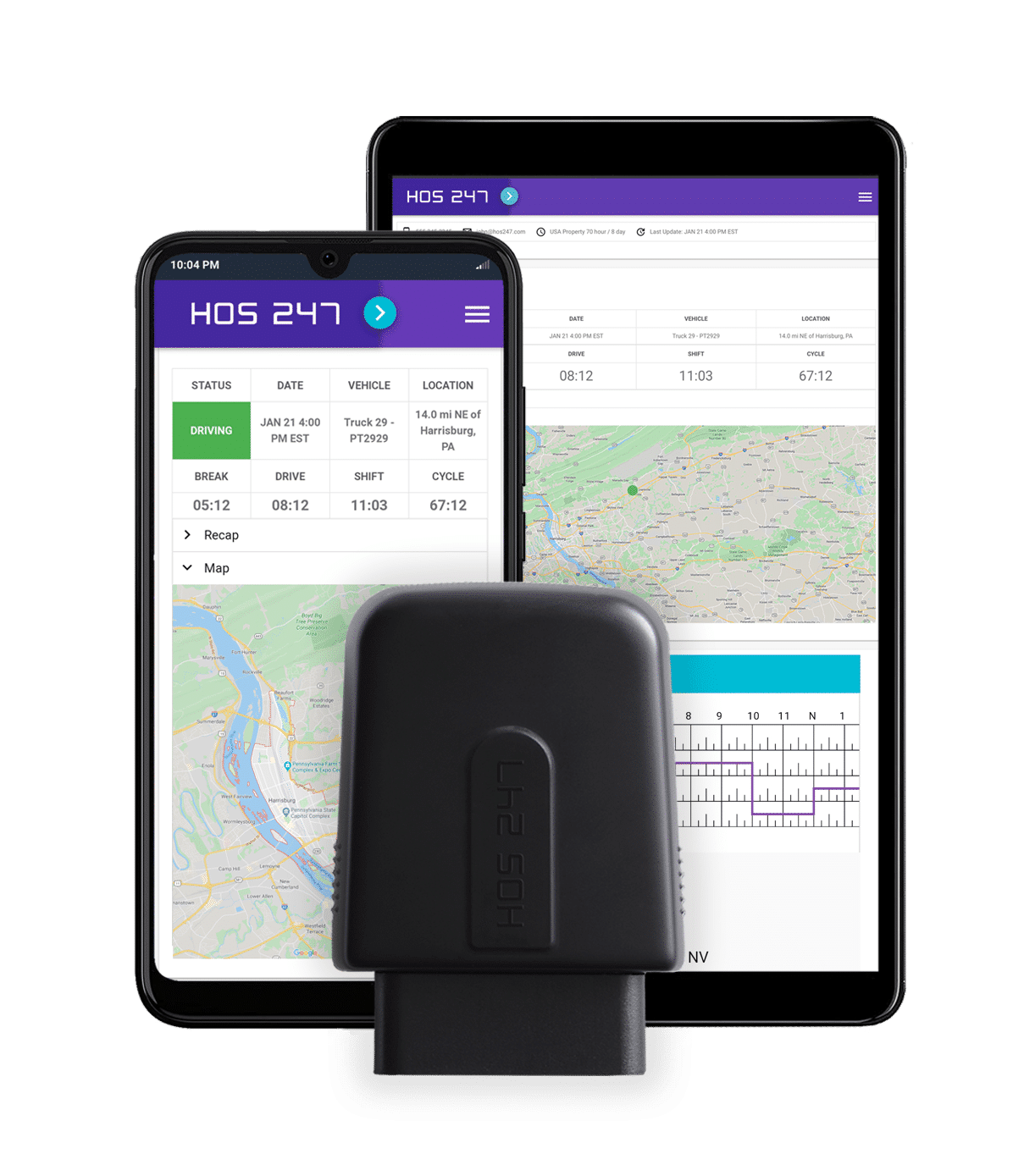For businesses that manage a fleet of vehicles, efficient operations and asset management are essential. GPS providers offer different solutions to achieve these goals. By monitoring the location and performance of vehicles in real-time, fleet tracking systems help grant valuable insights into driver behavior, dispatch efficiency, and options to reduce operational costs. In this article, we’ll explore the key factors to consider when selecting a reliable GPS fleet tracking provider to find efficient and comprehensive tracking services tailored to meet your business needs.
In this article, we’ll explore the key factors to consider when selecting a reliable GPS fleet tracking provider to find efficient and comprehensive tracking services tailored to meet your business needs. We’ll examine how different types of operations require different solutions, compare major providers in the market, and explain why integrated systems deliver superior value. By understanding these critical elements, you’ll be equipped to choose a GPS tracking partner that supports your success today and scales with your growth tomorrow.
Do you have any questions? Talk to ELD Advisor: 650-405-3372 or Request Callback
Choosing a GPS Fleet Tracking System
As a business owner or fleet manager, selecting the right GPS solution can be a daunting task. With numerous fleet tracking providers available, it is crucial to compare fleet tracking systems and consider all relevant factors to ensure that you get the most out of the service. To assist with your decision-making process, we have compiled a list of qualities to look for when selecting a GPS solution.
- User-friendly. The usability of the solution is a crucial factor to consider when selecting a provider. Look for GPS fleet tracking systems that are user-friendly and intuitive, allowing users to navigate the software without the need for extensive training. Look for user reviews to find out from actual users if the system meets this requirement.
- Real-time GPS tracking. Prioritize finding a tracking system that provides real-time updates of your trucks’ locations. Real-time tracking enhances security and supports dispatchers by reducing their workload.
- Easy installation. Opt for a tracking system that is straightforward to set up and doesn’t require a specialist to install it. A user-friendly installation process ensures a smooth setup for your tracking system.
- Demo or trial period. Before investing in a GPS system, inquire if the provider offers a demo or trial period for their GPS service. This allows you to check whether their system is easily implemented and truly helpful for your business.
- Customer support. Effective customer service is crucial when choosing a provider. Look for a reliable and knowledgeable technical support team that can help you address any issues that may arise while using the tracking system. Prompt assistance and clear communication ensure that your fleet’s tracking needs are met, enabling you to manage your vehicles effectively.
- Compatibility. Consider a GPS provider that offers a system suitable for use on light- or medium-duty trucks, trailers, and other vehicles in your fleet. Versatile devices allow for effective monitoring and tracking of your entire fleet, providing comprehensive insights into your operations.
- 4G technology. Look for a fleet tracking system provider that offers 4G network-enabled devices, as they offer reliable connectivity and accurate tracking information.
- Integration with an electronic logging system. If your trucks travel interstate, it’s best to choose GPS tracking that integrates with an electronic logging system. This ensures compliance with the ELD laws and streamlines your operations by working with a single system. Select a provider that offers this feature for seamless and efficient tracking while enhancing compliance with regulatory requirements.
These qualities provide a solid foundation for evaluating any GPS fleet tracking system. However, finding the perfect solution also depends on your specific operational needs. A long-haul trucking company has different tracking requirements than a local delivery service, just as owner-operators face different challenges than large fleet managers. Let’s examine how various types of operations can benefit from tailored GPS tracking features.
Fleet Tracking for Different Types of Operations
Fleet tracking isn’t a one-size-fits-all solution. Different operations require different approaches to monitoring, compliance, and data management. Understanding these distinctions helps ensure you select a system that aligns with your specific operational needs.
Long-haul vs. Short-haul Operations
Long-haul operations demand continuous tracking with extended battery life and reliable connectivity across state lines. These fleets need systems that capture detailed route data and provide comprehensive hours of service monitoring to ensure compliance during multi-day trips. Real-time updates become crucial when drivers are hundreds of miles from home base.
Short-haul operations, while still requiring accurate tracking, often focus more on frequent stops, delivery confirmations, and rapid turnaround times. These fleets benefit from systems that excel at geofencing and provide quick alerts for arrivals and departures. HOS compliance remains important, though short-haul exemptions may apply for drivers operating within 150 air-miles of their work location.
Owner-operators vs. Large Fleets
Owner-operators need cost-effective solutions that deliver essential features without unnecessary complexity. They require systems with straightforward pricing, minimal hardware costs, and month-to-month flexibility. The ideal solution provides compliance tools, basic tracking, and fuel efficiency monitoring without breaking the budget.
Large fleets demand scalable platforms capable of managing hundreds of vehicles simultaneously. These operations benefit from volume pricing, advanced analytics, and integration capabilities with existing management systems. Features like driver scorecards, maintenance scheduling across multiple vehicles, and detailed reporting become essential for maximizing operational efficiency.

Interstate vs. Intrastate Considerations
Interstate operations must comply with federal ELD mandates, making FMCSA-certified devices non-negotiable. These fleets need systems that automatically track state crossings for IFTA reporting and maintain compliant logs across jurisdictions. The tracking system must seamlessly handle varying state regulations while maintaining consistent federal compliance.
Intrastate operations may face different requirements depending on state regulations. Some states mirror federal ELD requirements, while others maintain unique standards. Fleet managers must verify their tracking system meets both current state requirements and can adapt to regulatory changes. Even when ELDs aren’t mandated, many intrastate fleets find the efficiency gains justify the investment.
Industry-Specific Needs
Construction fleets require robust asset tracking beyond vehicles. GPS systems that monitor equipment location, usage hours, and maintenance schedules help prevent theft and optimize resource allocation. Job site management features, including geofencing for automatic clock-in/out and project-based reporting, streamline operations and improve billing accuracy.
Delivery operations prioritize route optimization and customer communication. Advanced tracking systems provide real-time ETAs, proof of delivery capabilities, and integration with dispatch software. Features like stop sequencing and traffic-based rerouting help drivers complete more deliveries while maintaining service quality.
Refrigerated transport adds another layer of complexity with temperature monitoring requirements. Modern GPS systems integrate with reefer units to track temperature data alongside location information. This combination ensures cargo integrity while providing documentation for compliance and customer assurance. Real-time alerts for temperature deviations help prevent costly cargo losses.
Major Fleet Tracking Providers in the Market
The GPS fleet tracking market offers numerous options, each with distinct strengths. Understanding these differences helps fleet managers make informed decisions based on their specific needs.
HOS247
HOS247 delivers reliable GPS fleet tracking that’s easy to use and understand. The system provides real-time vehicle tracking, location alerts, and idle monitoring to help reduce fuel costs and improve efficiency. Drivers appreciate the simple interface that works well even during long shifts, while managers benefit from powerful tracking tools. Pricing starts at $22 per vehicle monthly with no contracts required. Customer support is offered in multiple languages seven days a week and includes a two-week free trial to test the system.
Geotab
Geotab offers an open platform that works well with other software systems. Many large companies choose Geotab because it connects with their existing business tools and allows for custom features. The system provides strong tracking capabilities and detailed reporting options. While powerful, Geotab often requires more technical knowledge to set up and manage. This makes it a good fit for businesses with IT support teams.
Verizon Connect
Verizon Connect uses Verizon’s cellular network to provide reliable GPS tracking across the country. The system excels at serving large fleets that need detailed reports and connections to other business software. Verizon offers comprehensive fleet management tools beyond basic tracking. Their solutions tend to be more expensive but include enterprise-level features. Many large trucking companies rely on Verizon’s established network and support infrastructure.
Motive
Motive (formerly KeepTruckin) focuses on making fleet tracking simple for smaller operations. They’re known for excellent customer service and easy-to-use software that doesn’t require extensive training. The company started with ELD compliance and expanded into full fleet tracking. Owner-operators and small fleets often choose Motive for its straightforward pricing and helpful support team. Their mobile app receives particularly high ratings from drivers.
Omnitracs
Omnitracs has served the trucking industry for over 30 years, specializing in long-haul operations. They understand the unique needs of over-the-road drivers and offer features designed specifically for traditional trucking. The company provides reliable tracking along with tools for dispatch and driver communication. While their systems are proven and dependable, they typically cost more than newer competitors. Many established trucking companies trust Omnitracs based on their long industry history.
The choice of provider matters because truckers face unique challenges: irregular schedules, varying route conditions, and strict compliance requirements. The right GPS tracking system becomes more than a monitoring tool — it becomes a partner in maintaining profitability, ensuring safety, and simplifying compliance. Fleet managers must look beyond features lists to consider factors like customer support availability, ease of use during long driving hours, and the provider’s understanding of trucking-specific needs.
Benefits of Choosing HOS247 as Your GPS Fleet Tracking Provider
HOS247 has established itself as a leading GPS fleet monitoring provider by offering quality services for years. With top-rated customer service and exceptional benefits, HOS247 can help you improve the bottom line, while keeping drivers and vehicles safe. Let’s explore the main benefits you can enjoy by choosing HOS247 as your GPS provider.
- Cost savings. The GPS tracking system is a cost-effective solution that provides real-time updates on vehicle speed and idle time. Fleet managers can proactively address issues and reduce fuel consumption, resulting in significant cost savings. The maintenance management feature also helps prevent costly breakdowns and repairs.
- Safety and security. HOS247’s tracking system enables continuous vehicle monitoring, offering real-time alerts in the event of unauthorized vehicle movement or accidents. The maintenance management feature aids in early detection of potential issues, enhancing driver and cargo safety on the road.
- Easily implemented. Our GPS truck tracker software is designed to be easily accessible and simple to install, making it suitable for businesses of all sizes. The system can be set up without the need for a technician, minimizing disruption to operations.Additionally, our multilingual customer service representatives will help with any issues you encounter.
The GPS fleet tracking system offers complete fleet visibility, enabling supervisors to effectively monitor and manage the fleet and other assets in real-time. This improves overall business efficiency, but there are other features that contribute to better trucking operations — we will discuss some of these in the next section.

GPS Fleet Tracking vs. Basic ELD: Understanding the Difference
While all ELDs provide location data, there’s a significant difference between basic compliance devices and comprehensive GPS fleet tracking systems. Understanding these distinctions helps truckers maximize their technology investment.
Core ELD Functions
Basic ELDs focus primarily on regulatory compliance. They automatically record driving time, maintain hours of service logs, and capture required location data at specific intervals. These devices meet FMCSA requirements by tracking engine hours, vehicle movement, and miles driven. While essential for compliance, basic ELDs typically provide minimal functionality beyond generating compliant logs for DOT inspections.
Enhanced Fleet Tracking Features
GPS fleet tracking systems build upon ELD foundations to deliver comprehensive operational insights. Real-time monitoring provides continuous location updates, enabling dispatchers to respond quickly to delays or route changes. Driver behavior analysis tracks harsh braking, rapid acceleration, and speeding events, helping improve safety and reduce wear on equipment.
Advanced systems monitor fuel consumption patterns and identify excessive idling, often revealing opportunities to reduce fuel costs by 10-15%. Maintenance scheduling features track mileage and engine hours, automatically alerting managers when service is due. Route optimization capabilities analyze traffic patterns and delivery sequences, helping drivers complete more stops while reducing overall mileage.
Why Integrated Solutions Are Better
Managing separate ELD and GPS tracking systems creates unnecessary complexity. Drivers must learn multiple interfaces, increasing the likelihood of errors and compliance issues. Integrated solutions eliminate this redundancy by combining all functionality into a single, user-friendly platform.
Unified data and reporting streamline administrative tasks. Instead of reconciling information from multiple sources, managers access comprehensive insights through one dashboard. This integration reduces training time, minimizes hardware costs, and simplifies troubleshooting when issues arise. Most importantly, it provides a complete operational picture that separate systems cannot match.
HOS247 Offers All-In-One Vehicle Fleet Management to Improve Operations and Safety
HOS247 offers an all-in-one solution that includes all the features mentioned above. This comprehensive system helps you manage your vehicle fleet and improve your overall operations. Here are some features that make HOS247 one of the top GPS fleet tracking systems:
- Electronic logging device. Our electronic logbook automates the logging and reporting of driver hours, helping truckers comply with the FMCSA’s hours of service regulations and avoiding expensive fines and penalties.
- Vehicle maintenance. HOS247’s all-in-one solution includes a preventative maintenance system to track oil changes, license renewals, and other maintenance activities automatically. This helps maintain truck reliability and prevents breakdowns during journeys.
- IFTA calculations. HOS247 simplifies tax reporting and reduces human error by automating complex IFTA mileage calculations. This decreases the risk of audits and streamlines reporting processes.
- Fault code detection.HOS247’s onboard diagnostics monitoring system helps truckers avoid costly repairs and reduce vehicle downtime. It notifies drivers of malfunctions by generating specific trouble codes, which can be transmitted to the fleet or maintenance department for immediate attention.
- Automated idle tracking. The automated idle tracking feature optimizes fuel usage and minimizes the CO2 footprint. It provides insights on fleet vehicles that consume excessive fuel, helping reduce operational costs.
By choosing HOS247’s integrated solution, fleets eliminate the complexity of managing multiple systems while gaining access to powerful tools that extend far beyond basic compliance.
Ways ELDs Can Help Your Business
In addition to enhancing compliance with the ELD mandate, preventing expensive HOS-related penalties, and minimizing administrative burden, a reliable elog system can provide businesses with various ways to increase profits and enhance their reputation.
- Lower insurance premiums. Electronic logbooks have been proven to enhance fleet safety, making companies that utilize them more appealing to insurance providers. This results in lower insurance premiums, as these companies are considered less prone to accidents.
- Improved safety ratings. ELDs assist drivers in adhering to hours of service regulations and minimizing violations. Fleet managers can utilize the data collected by the devices to monitor and address unsafe driving behaviors, ultimately reducing the number of accidents. This contributes to improved safety ratings, such as Compliance, Safety, and Accountability (CSA) scores, which can open up better business opportunities.
- Mitigated liabilities. ELDs can be invaluable for companies facing legal proceedings resulting from accidents involving commercial trucks. The data recorded by ELDs can serve as crucial evidence in court, helping to support the company’s case or minimize penalties, particularly when the driver is not at fault.
Exemptions to the ELD Mandate

Although under the ELD law, most commercial motor vehicle drivers are subject to use an elog device to record their hours of service, there are a few exemptions to the mandate that include:
- An 8-day exemption for drivers who keep a RODS for around 8 days within a 30-day period.
- A driveaway-towaway operations exemption for vehicle carriers delivering trucks.
- A pre-2000 exemption for vehicles manufactured before 2000.
- A short-haul exemption for drivers operating within a 100 or 150-air-mile radius of their work location.
HOS247 is a trustworthy GPS fleet tracking provider that can help you optimize your operations and save money. To learn more about our services, you can easily book a demo and experience firsthand how HOS247 can benefit your business.
Conclusion
Selecting the right GPS fleet tracking provider directly impacts your profitability, compliance, and operational efficiency. The ideal system combines user-friendly design, real-time tracking, easy installation, and responsive customer support — all while addressing the unique challenges truckers face daily.
Today’s integrated solutions go far beyond basic location monitoring. By combining ELD compliance with advanced features like fuel management, maintenance scheduling, and driver behavior analysis, modern platforms eliminate the need for multiple systems while delivering actionable insights that drive your bottom line.
As regulations evolve and competition intensifies, partnering with the right fleet tracking provider becomes crucial. Whether you’re an owner-operator focused on cost-effective compliance or managing a large fleet requiring advanced analytics, your tracking system should adapt to your needs while simplifying daily operations.
Don’t let outdated technology or complex systems hold your fleet back. The right GPS tracking solution transforms compliance requirements into opportunities for improved safety, reduced costs, and stronger competitive positioning. Book a demo with HOS247 today and discover how our integrated solutions keep you compliant and profitable on every mile of your journey.

I’ve co-founded, built and managed several transportation-related businesses. Now, I’m a founder and CEO of HOS247 – an AI Transportation Platform for trucking companies, freight brokers and other logistics operations. We are transitioning old-style operations to technology-advanced logistics entities and help them to grow their businesses. ELDs (electronic logging devices), fleet tracking and management 2.0 combined with AI-powered dispatch tools.












The FMCSA has enabled a registration list for ELD providers available to carriers and owner-operators in search of a compliant logbook. There are many elog system options to choose from, at times it can be an overwhelming task. When choosing,

GPS tracking technology delivers measurable benefits for fleets of every size, helping operators reduce costs while maintaining ELD compliance. New generation fleet truck tracking technology puts businesses in control of every vehicle in their fleet, providing comprehensive visibility into operations

Fleet managers constantly face increasing demands to enhance operational efficiency, ensure safety, and reduce costs. GPS fleet tracking software gives fleet managers the ability to keep track of every vehicle in their fleets in real time. But it isn’t just